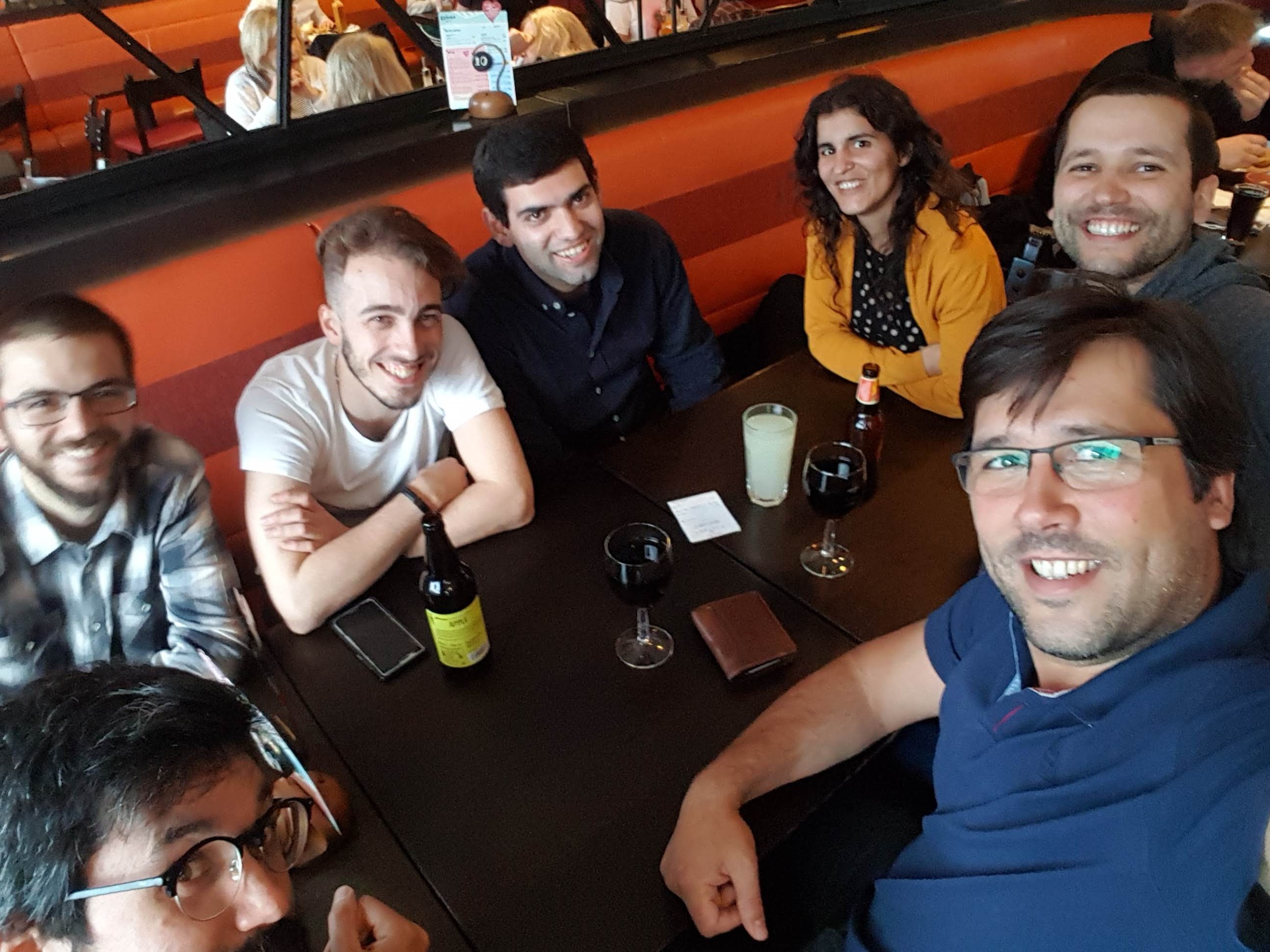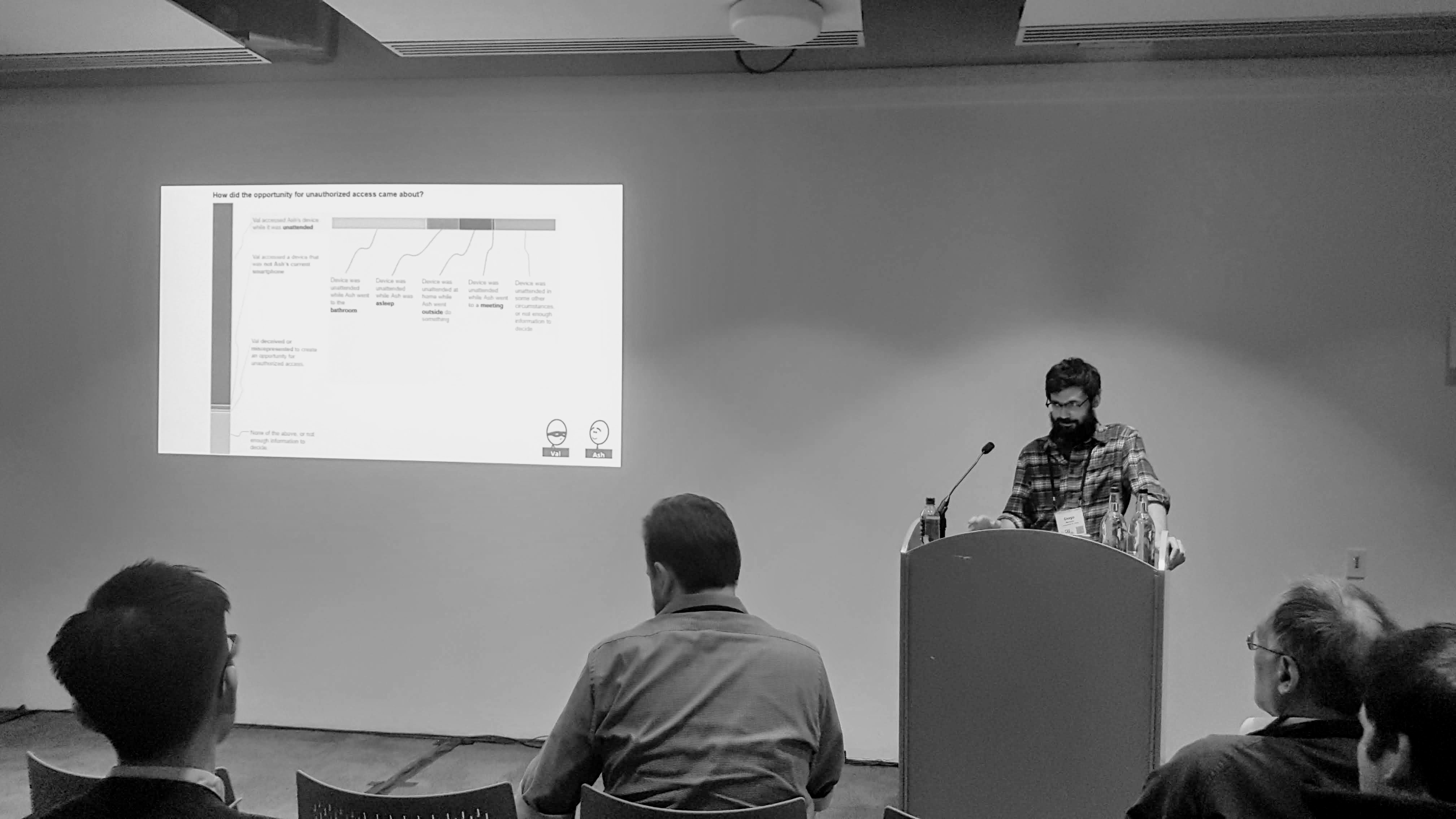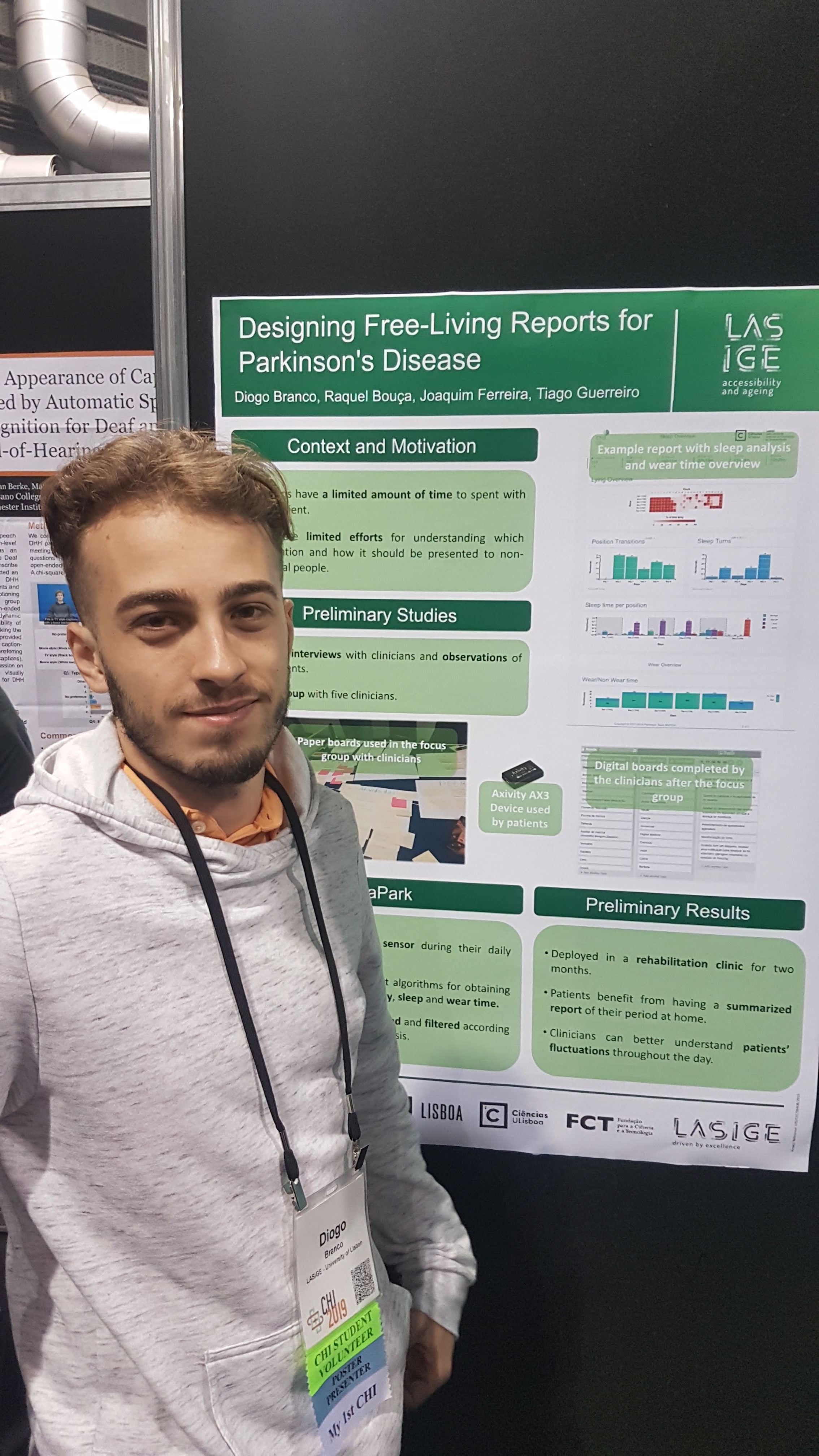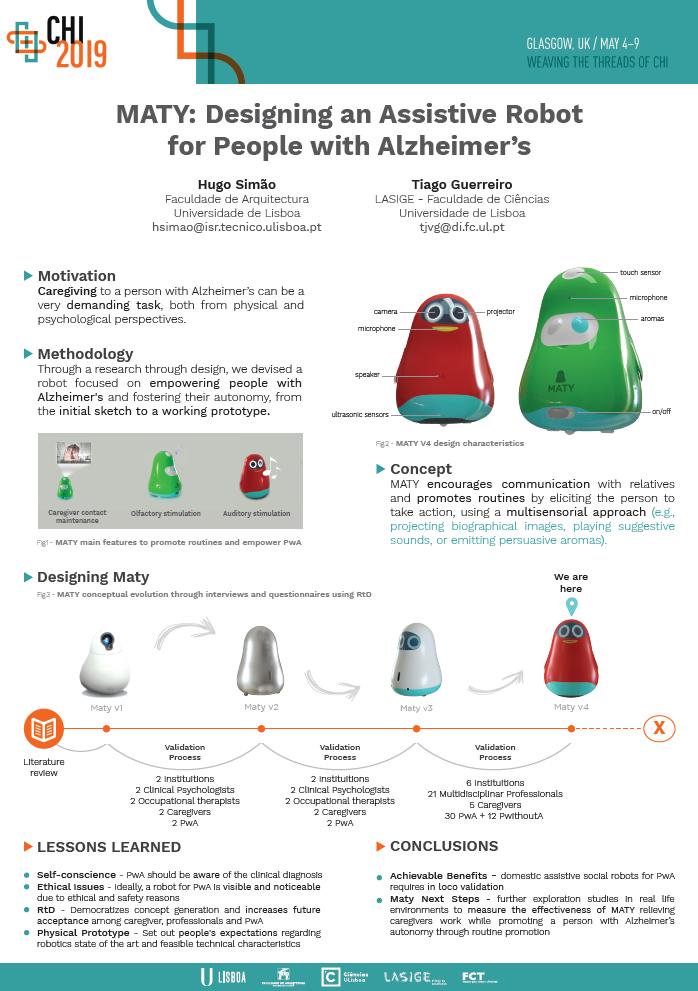CHI 2019 was in Glasgow this year. Seven of us participated in the top-tier conference in Human-computer interaction.

Subcommittee Chair for Accessibility & Aging
I was honoured to serve as a subcommittee chair for Accessibility & Aging, together with Anne Marie Piper. Having been at the conference, I am very happy with the set of A&A papers that were presented: they made us proud.
Vulnerability & Blame: Making Sense of Unauthorized Access to Smartphones
Diogo Marques presented the latest advances in his PhD work, on making sense of unauthorized access to smartphones, by people close to you. This is one of the last steps of his PhD and I couldn’t be happier with the quality of his work. In this paper, Diogo was able to capture and portray a wide set of “attacks” to one’s phone by people in their close proximities.

More than that, in making sense of these attacks, it becomes clear that interpersonal relationships make current authentication barriers to be ineffective. They do not account for trust and how access will be used to communicate it. Cautiously, our main takeway is for people to consider how a computer security measure will be used to negotiate trust among people close to one another.
Link to Vulnerability and Blame Paper
Late-breaking Work on Digital Healthcare
Diogo Branco and Hugo Simão had their projects accepted as Late-breaking work.

Diogo presented our work on data-driven healthcare, particularly on the design of reports from free-living accelerometer data, for people with Parkinson’s disease and their clinicians. Diogo also presented our broader work on digital healthcate in the context of PD at the WISH symposium at CHI.
Link to Data-Driven Healthcare Paper Link to Paper at WISH
I presented MATY, a robot that promotes identity, routines, and communication through multisensorial stimuli for people with Dementia, a work led by my MSc student Hugo Simão.
